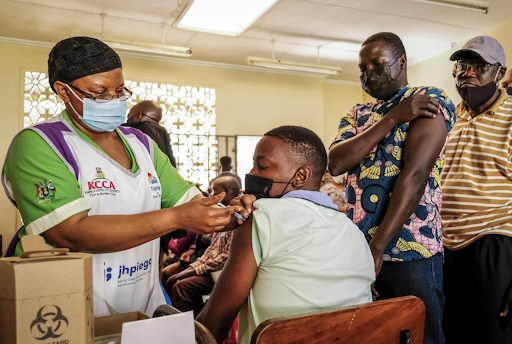US to Expedite Vaccination Assistance in Sub-Saharan Africa
The Biden administration created the Global VAX initiative last December in an effort to prevent a new COVID variant from arising. On Feb. 17, the administration announced plans to ramp up vaccination efforts in 11 Sub-Saharan African countries, including Angola, Côte d’Ivoire, Eswatini, Ghana, Lesotho, Nigeria, Senegal, South Africa, Tanzania, Uganda, and Zambia.
These countries were selected “based on the burden of COVID-19 on their populations, the capacity of their health systems, their readiness to quickly administer vaccine doses in the absence of supply constraints and their ability to effectively deploy additional US investments,” according to the New York Times.
“The US government will surge support for an initial subset of countries in Sub-Saharan Africa that have demonstrated the potential for rapid acceleration of vaccine uptake with intensive financial, technical, and diplomatic support,” announced USAID spokesperson, Rebecca Chalif.
Under the Global VAX Initiative, the US is allocating nearly half of the $510 million in the program to help with the vaccination of these countries. The hundreds of millions of dollars will be used “in the form of in-person staffing, technical assistance, and more diplomatic engagement in terms of their vaccination campaigns,” as reported by The Washington Post.
South Africa, the country where the Omicron variant originated last December, is one of the 11 countries the Biden administration wants to target with vaccines. Photo: Associated Press/ Denis Farrell
The Biden administration clarified that the initiative’s efforts extend past just providing the vaccine. Other efforts of assistance include “investments in mobile centers to administer shots, freezers for safe vaccine storage and other supplies.”
Countries across the African continent are experiencing major issues when it comes to vaccinating their populations. Poor vaccine storage freezers and distribution to isolated villages prove to be a continual burden preventing the vaccination process. Hesitancy and misinformation surrounding the vaccine is another reason for low vaccination rates. Only 11 percent of the total African population, around 168 million citizens, have been fully vaccinated.
“This is an initiative that will allow us to make our own vaccines and that, to us, is very important,” says President Matamela Cyril Ramaphosa of South Africa. “It means mutual respect, mutual recognition of what we can all bring to the party, investment in our economies, infrastructure investment and, in many ways, giving back to the continent.”


